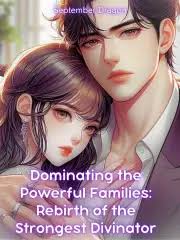The Story in 3 Sentences
A downtrodden girl, Nan Yu, is dragged from obscurity to play a disposable decoy, forced into a sham marriage with a feared, wheelchair-bound heir to shield the Nan family’s true golden child from a terrifying fate.
Her hidden brilliance and secret identities begin to surface, transforming her from a mocked imposter into a figure of awe and desire, while the world cruelly pities her for being shackled to a broken man.
The ultimate twist arrives when her “disabled” husband, Huo Juanyan, rises with terrifying power, revealing his own deception and trapping her not in a cage of pity, but in the intoxicating, inescapable grip of his love and dominance.
Why It Stands Out
1. The Ultimate Power Couple Deception
It’s a delicious double bluff where both leads are playing the long game. She hides her genius and multiple elite personas behind a mask of rural simplicity, while he feigns helplessness, making their eventual unmasking a symphony of mutual shock and awe. Their relationship isn’t just romance; it’s a high-stakes game of hidden aces where vulnerability is the sharpest weapon.
2. From Disposable Pawn to Coveted Queen
The narrative arc flips the victim script entirely. Nan Yu’s journey isn’t about reclaiming a stolen birthright; it’s about forging an entirely new, self-made identity so dazzling that the world that once scorned her now scrambles for her favor. Her power comes from within, making her ascent feel earned and deeply satisfying against the backdrop of her initial helplessness.
3. The Paralyzed Tyrant Trope, Perfected
Huo Juanyan embodies the ultimate fantasy: the man whose perceived weakness is a terrifying facade. His initial portrayal as a cruel, immobile master makes his eventual reveal as a towering, all-powerful force exponentially more impactful. The juxtaposition of his feigned fragility with his true, ruthless dominance creates an electric, almost dangerous, romantic tension that drives the entire plot.
Characters That Leave a Mark
There’s Nan Qingqing – the meticulously crafted “real” heiress, whose entire existence is a gilded lie designed to steal Nan Yu’s life and future, making her the living embodiment of the family’s betrayal.
You’ll meet Li Yingying, who emerges as a mysterious figure whose very name hints at a deeper, perhaps rival, hidden identity, adding layers of intrigue and potential threat to Nan Yu’s carefully constructed world.
And Huo Juanyan? They’re the one who orchestrated the entire charade from his wheelchair, a master strategist whose feigned paralysis was the perfect trap, not just for his enemies, but for the heart of the woman he claimed as his own.
The Flaws Fans Debate
The ending is catastrophically broken, with numerous chapters from 403 onwards being scrambled, repeated, or completely missing, robbing readers of a coherent and satisfying conclusion.
The plot suffers from severe pacing issues, dragging on for hundreds of chapters fueled by repetitive misunderstandings and contrived conflicts that test the reader’s patience.
Both the female and male leads are criticized for being frustratingly slow-witted and passive, allowing external forces to dictate their story rather than driving the action themselves.
Must-Experience Arcs
Ch. 1–50: The Pawn’s Gambit – Nan Yu is thrust into the viper’s nest of the Nan and Huo families, navigating her fake identity and her terrifying, seemingly helpless husband while her first hidden talents begin to flicker.
Ch. 150–250: The Masks Begin to Slip – Nan Yu’s secret identities gain traction in the outside world, drawing admiration and danger, while subtle cracks appear in Huo Juanyan’s paralyzed facade, hinting at the storm beneath.
Ch. 400–469: The Grand Unmasking (and Collapse) – The truth about everyone’s identities explodes into the open, leading to a final confrontation, but the narrative itself fractures, with the promised grand finale marred by technical errors and repetition.
Killer Quotes
“Sweetie, I heard that you want to divorce me?”
Cultural Impact
Readers are actively cataloging the broken chapters online, creating shared documents to warn others and piece together the intended plot.
The novel is frequently cited in forums as a prime example of how technical glitches can ruin an otherwise promising story, sparking discussions about platform accountability.
Despite its flaws, the core premise of the double-deception romance remains popular, with fans lamenting the wasted potential and hoping for a corrected re-release.
Final Verdict
Start Here If You Want:
A classic, trope-heavy romance with a deliciously deceptive male lead and a female lead who transforms from zero to hero.
High drama, family betrayals, and the cathartic satisfaction of watching the underdog rise to the top.
A story where the central romantic tension is built on a foundation of mutual, hidden strength and a massive, game-changing reveal.
Study If You Love:
Deconstructing the “contract marriage” and “disabled heir” tropes to see how they can be used to build complex power dynamics.
Analyzing narratives where female empowerment is achieved not through reclaiming birthright, but through the creation of entirely new, self-determined identities.
Exploring how reader communities respond to and document platform failures that impact the integrity of a published work.
Avoid If You Prefer:
Tightly plotted stories with logical character development and decisive protagonists who drive the action.
Novels with polished, error-free endings that provide clear closure and resolution.
Stories that avoid repetitive conflicts and prolonged periods of misunderstanding between the main characters.





